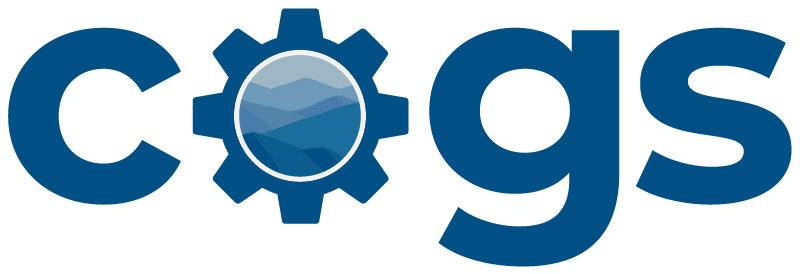Why Its Imperative to Automate Case Management
In the demanding world of legal services, case management is a cornerstone of operational efficiency. Yet, many law firms continue to grapple with outdated methods, leading to inefficiencies and missed opportunities. Automating case management offers a transformative solution, enabling firms to streamline processes, improve client satisfaction, and focus on substantive legal work. Here’s how automation can elevate your practice and why it’s time to make the switch.
The Importance of Automating Case Management
Legal professionals juggle a myriad of responsibilities—from client consultations to courtroom preparation. Traditional methods of managing cases often lead to inefficiencies, with administrative bottlenecks taking valuable time away from client-focused tasks. Automation addresses these challenges by introducing tools and workflows designed to:
Save time through streamlined processes.
Enhance accuracy by minimizing manual errors.
Improve client satisfaction with timely communication and service delivery.
Automation isn’t just about efficiency; it’s about creating a more agile, responsive, and profitable legal practice.
Common Bottlenecks Solved by Automation
Inefficiencies in document management, client communication, and billing can significantly impact a law firm's profitability. Here's a breakdown of the real-world costs associated with these common bottlenecks:
1. Inefficient Document Management
Managing legal documents manually is not only time-consuming but also costly. Consider the following:
Time Wasted: Lawyers spend an average of six hours per week dealing with document management issues, leading to a 9.8% loss in productivity. For a firm with 100 lawyers, this equates to over $900,000 annually in lost productivity.
Financial Costs: On average, law firms incur expenses of $20 to file a document, $120 to locate a misplaced document, and $220 to reproduce a lost document.
Productivity Loss: Document challenges account for over 21% of an organization's productivity loss.
2. Poor Client Communication
Inconsistent or inadequate communication can erode client trust and satisfaction. The costs include:
Client Dissatisfaction: Irregular updates and unclear communication can lead to client frustration, potentially resulting in lost business and damage to the firm's reputation.
Billing Disputes: Miscommunication regarding billing can cause disputes, delayed payments, and even loss of clients.
3. Time-Tracking and Billing Issues
Manual time tracking and billing inaccuracies can severely affect a firm's revenue:
Revenue Loss: Nearly 80% of law firms lose up to 10% of their revenue annually due to poor timekeeping and billing practices.
Transparency Issues: Manual processes can lead to a lack of transparency, causing client dissatisfaction and potential disputes.
Addressing these bottlenecks through automation can lead to significant cost savings, improved client relationships, and enhanced overall efficiency.
COGS Tailored Automation Solutions for Law Firms
COGS’ Switchback Packs provide industry-specific automation solutions for different areas of law, helping firms optimize their operations efficiently. These tailored packs include:
Real Estate Law Automation Pack – Streamline transactions, document management, and client communication for real estate law firms. Explore more
Family Law Automation Pack – Enhance case tracking, client updates, and document automation to simplify complex family law cases. Explore more
Criminal Defense Automation Pack – Optimize case intake, evidence tracking, and communication workflows for criminal defense firms. Explore more
Estate & Elder Law Automation Pack – Improve estate planning, document automation, and workflow efficiency for elder law attorneys. Explore more
Personal Injury Law Automation Pack – Automate client intake, case progress tracking, and medical record management for personal injury firms. Explore more
Each Switchback Pack provides ready-to-use tools that include:
Email Marketing Automation – Keep clients engaged with automated case updates and legal insights.
Client Intake Tools – Streamline data collection and automate onboarding.
Task Management Systems – Assign tasks, monitor deadlines, and track case progress effortlessly.
How to Implement Case Management Automation
1. Start with the Right Tools
Select tools designed for legal professionals. For example:
Lawmatics: Combines case management with marketing automation, making it perfect for firms looking to grow their client base.
Formstack: Enhances document automation by streamlining client intake and enabling seamless form creation.
Clio: Offers robust time tracking, billing, and case management features.
COGS Switchback: Simple, versatile and customizable for your firm’s scope and size.
2. Centralize Client Intake
Use platforms like Lawmatics to consolidate client information and case details. Integrating tools such as Formstack ensures all data is captured accurately from the start.
3. Streamline Document Management
Automate document creation and storage with tools that enable pre-configured templates and automated workflows. This ensures compliance, accuracy, and efficiency.
4. Enhance Client Engagement
Automate follow-ups, appointment reminders, and status updates using email automation and client portals. For example, Lawmatics’ client portal offers secure communication and document sharing, enhancing client trust and satisfaction.
5. Monitor and Optimize Workflows
Leverage analytics from tools like Lawmatics to identify bottlenecks and optimize processes. Metrics such as client acquisition rates, case progress, and revenue growth can provide actionable insights.
Practical Benefits of Automation
1. Increased Productivity
Automating repetitive tasks allows attorneys and support staff to focus on high-value work, boosting overall productivity.
2. Enhanced Accuracy
Automation reduces the risk of human error in critical processes like billing and document drafting.
3. Better Client Experience
Clients benefit from consistent updates, faster response times, and improved service delivery.
4. Scalability
Automation prepares law firms for growth by establishing processes that scale with increased case volume and client demands.
Final Thoughts
The legal industry is increasingly competitive, and the firms that succeed are those that adapt to changing client expectations and operational challenges. Automating case management isn’t just a trend; it’s a necessity for modern law practices. By leveraging tools like Lawmatics, Formstack, and tailored industry bundles such as The TREK, your firm can achieve new levels of efficiency, accuracy, and profitability.
Don’t let inefficiencies hold your practice back. Start automating your case management today and unlock the full potential of your legal team. For more insights and solutions, explore Chatham Oaks Growth Solutions’ offerings and see how we can transform your operations.

